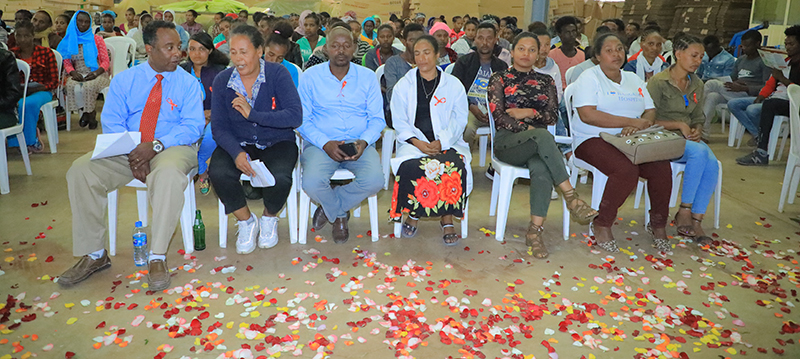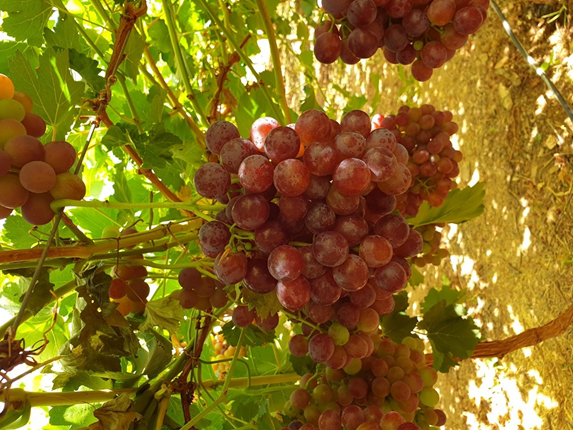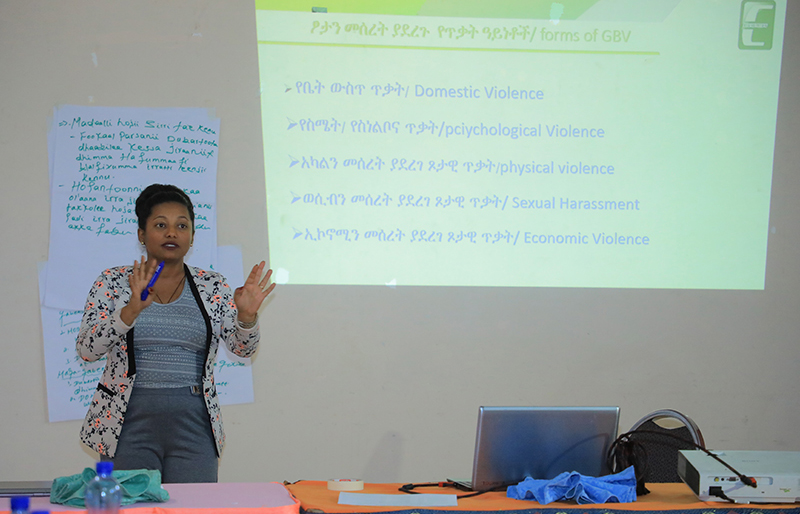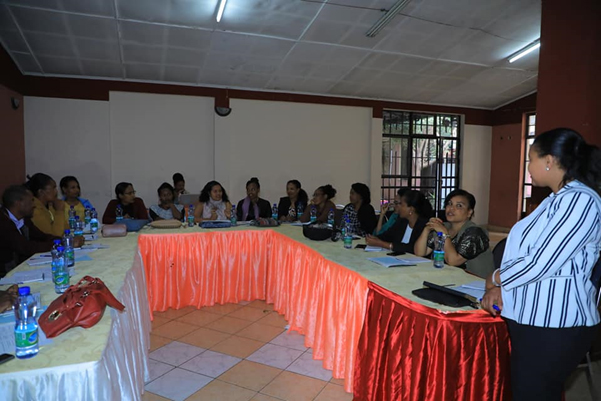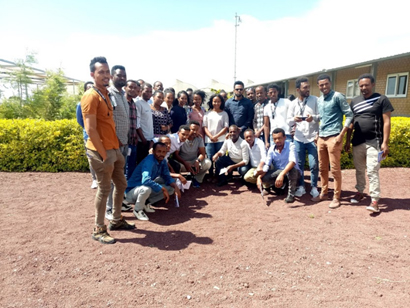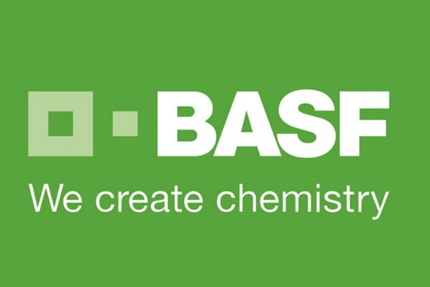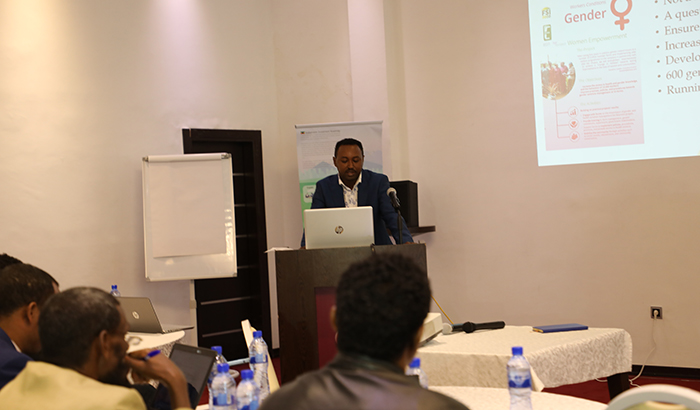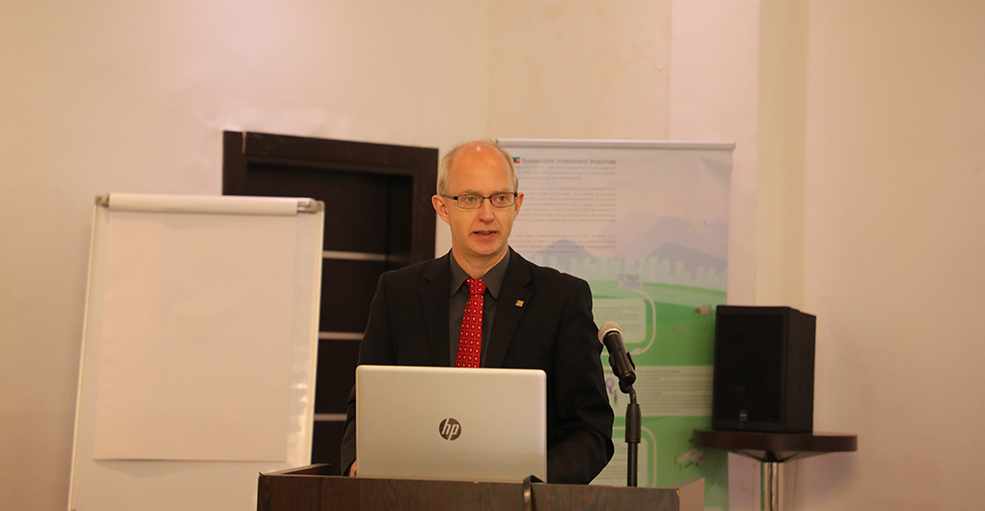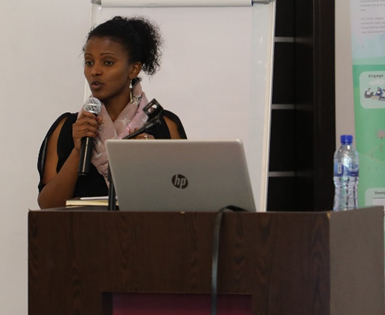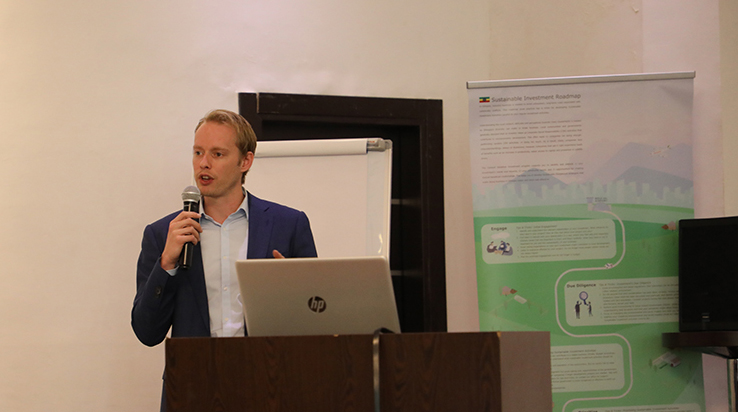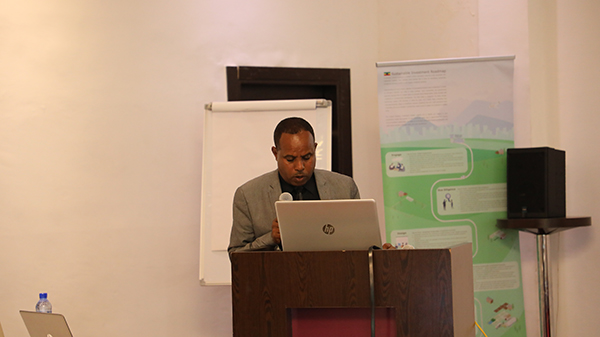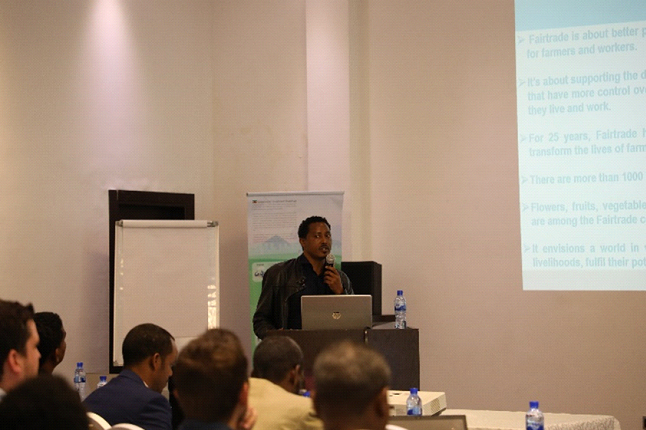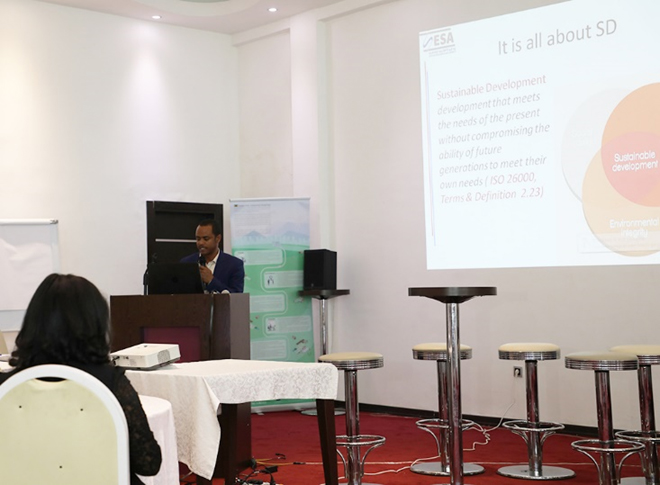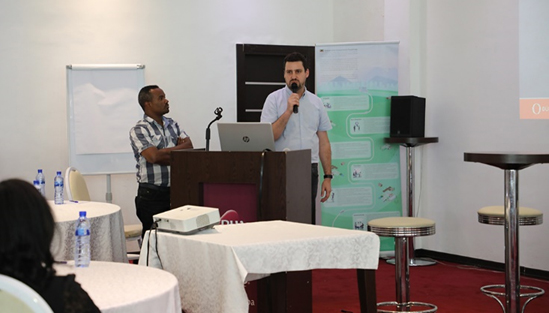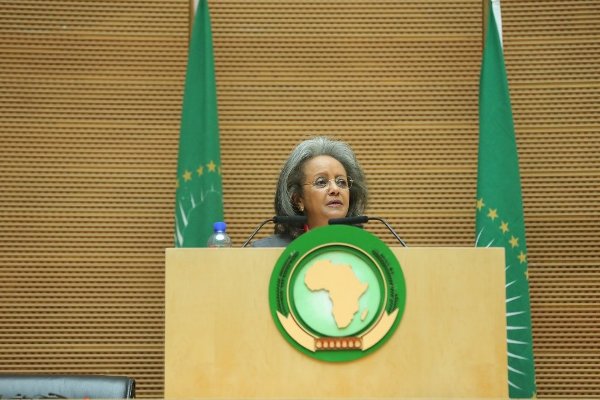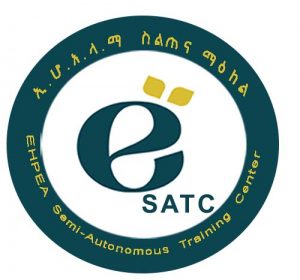The World AIDS Day has been commemorated in Sebeta Cluster Farm at Ethio Passion Farm compound on Friday December 6, 2019. The program was organized by EHPEA Gender Team in collaboration with EthioPassion Farm and Sebeta Town Health Office. On the event a total of 250 employee drawn from Et-Highland farm, Saron Roses PLC, and Lafto rose farm were in attendance.
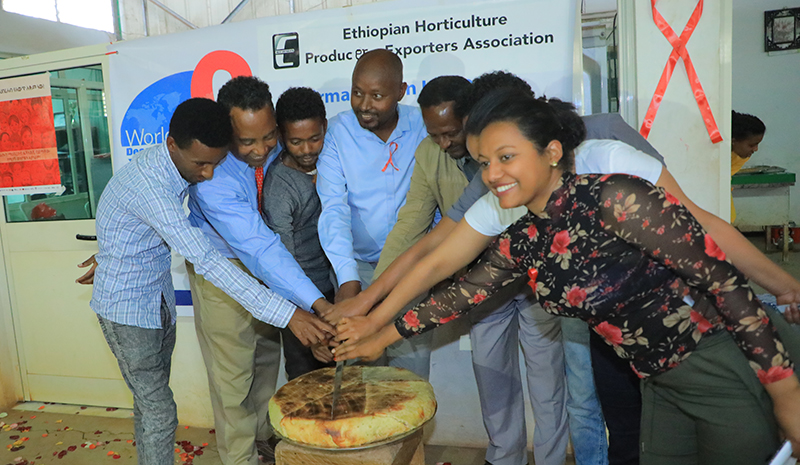
The program aimed to enhance the awareness of employees about HIV/AIDS in the workplace and to sensitize the management to give emphasis on addressing related issues, with the theme of “Communities make the difference”.
On the event representatives of Sebeta Town Health Office, focal of HIV AIDS team Mr. Aseffa Oljira and Sr. Asnakech Kebede presented on the current status of HIV/AIDS situation in the country and forwarded recommendations on how to create HIV/AIDS free work force and provide care and support for workers who live with the virus; in addition to that they have announced that a free services are available in their health center like cervical cancer, breast cancer and other services.

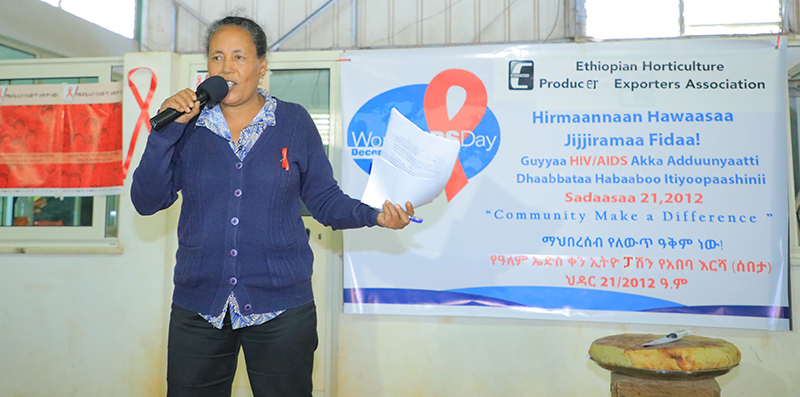
In addition to this the presenter’s stresses on the essential role that communities should play in the AIDS response both at workplaces and in the surrounding local communities.
EHPEA Gender Component Manager Mrs. Yodit Girma also gave a brief introduction on EHPEA’s efforts in addressing gender equality, gender based violence and HIV/AIDS problems at work places. Following her presentation program Manager of EHPEA also made a key note speech on the importance of communities’ response to HIV/AIDS pandemic at workplace and EHPEA’s commitment to work with the member farms in address the HIV/AIDS related problems as part of their Occupational Health and Safety standard measures.
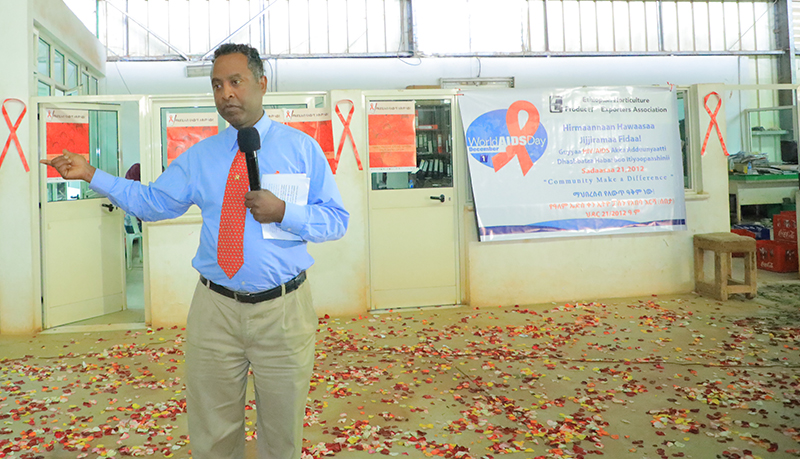
The Farm Manager of EthioPassion, Mr. Ermisa Aragaw acknowledged EHPEA for initiating and organizing this event. He also thanked the Sebeta Health Office for providing very important awareness raising presentation on HIV/AIDS, for availing voluntary counseling and testing services for the workers.
During the event free voluntary counseling and testing services availed to the participants by Sebeta Health office extension expert for 68 volunteer employee tasted for HIV so as to know their HIV status. The program was accompanied by various entertaining programs and discussion sessions.
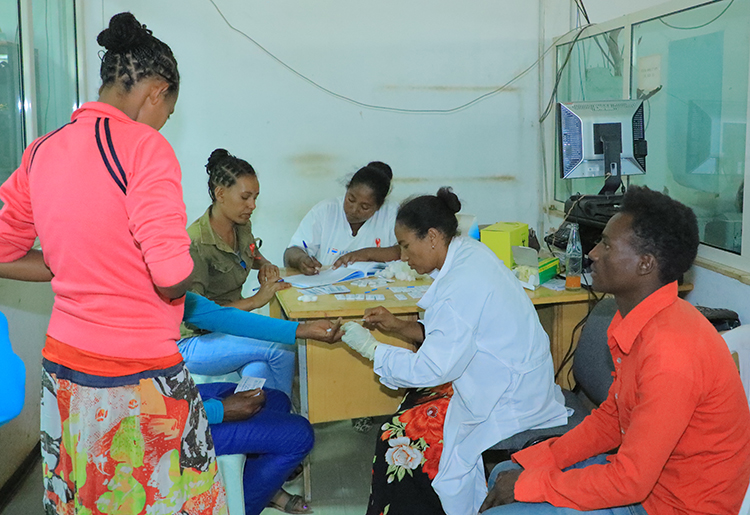
On the closing of the program the participants made a firm commitment to make their individual contribution for preventing themselves from HIV infection, provide the necessary support for people living with HIV and inform their close friends and families about HIV and AIDS.

